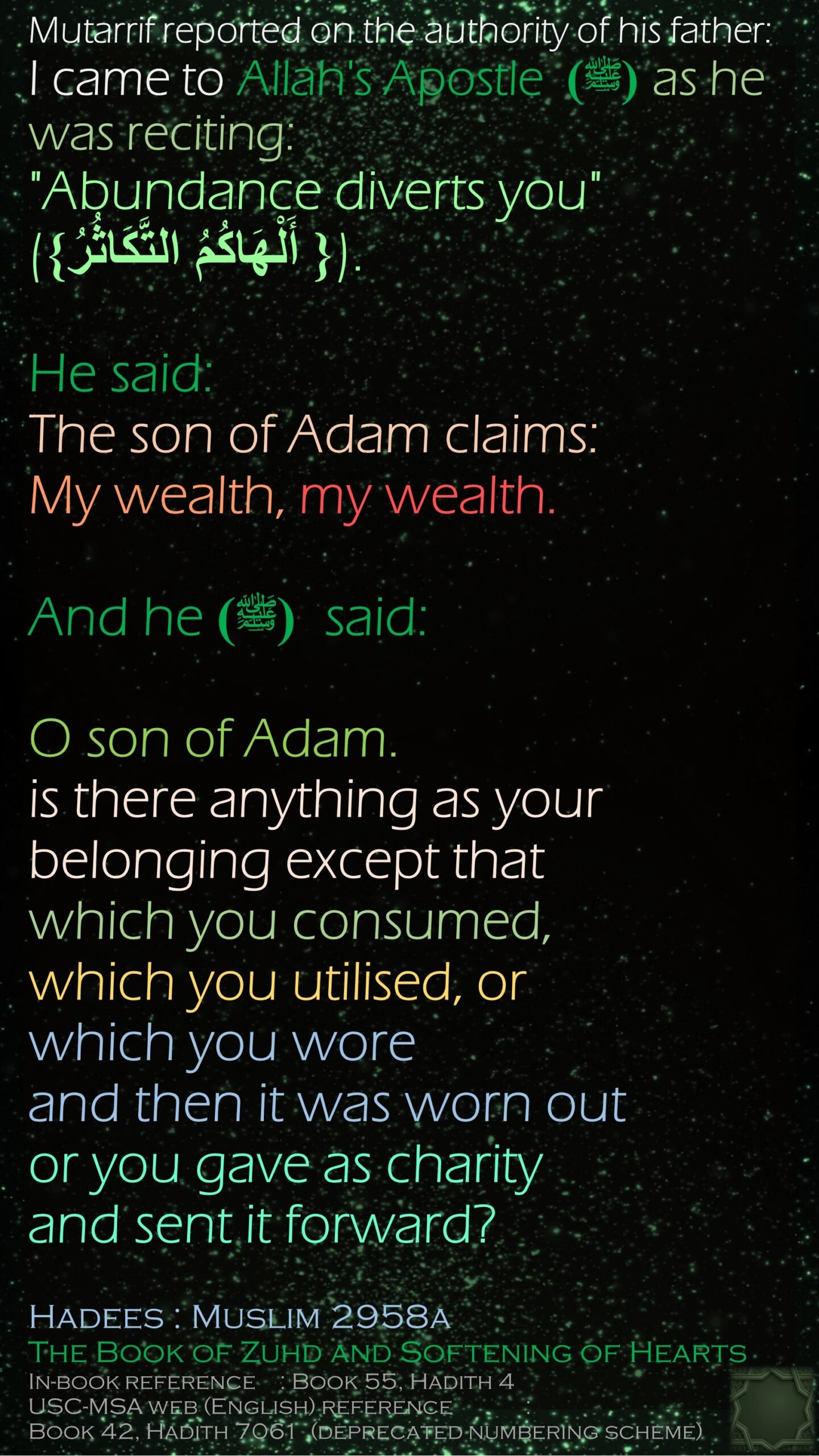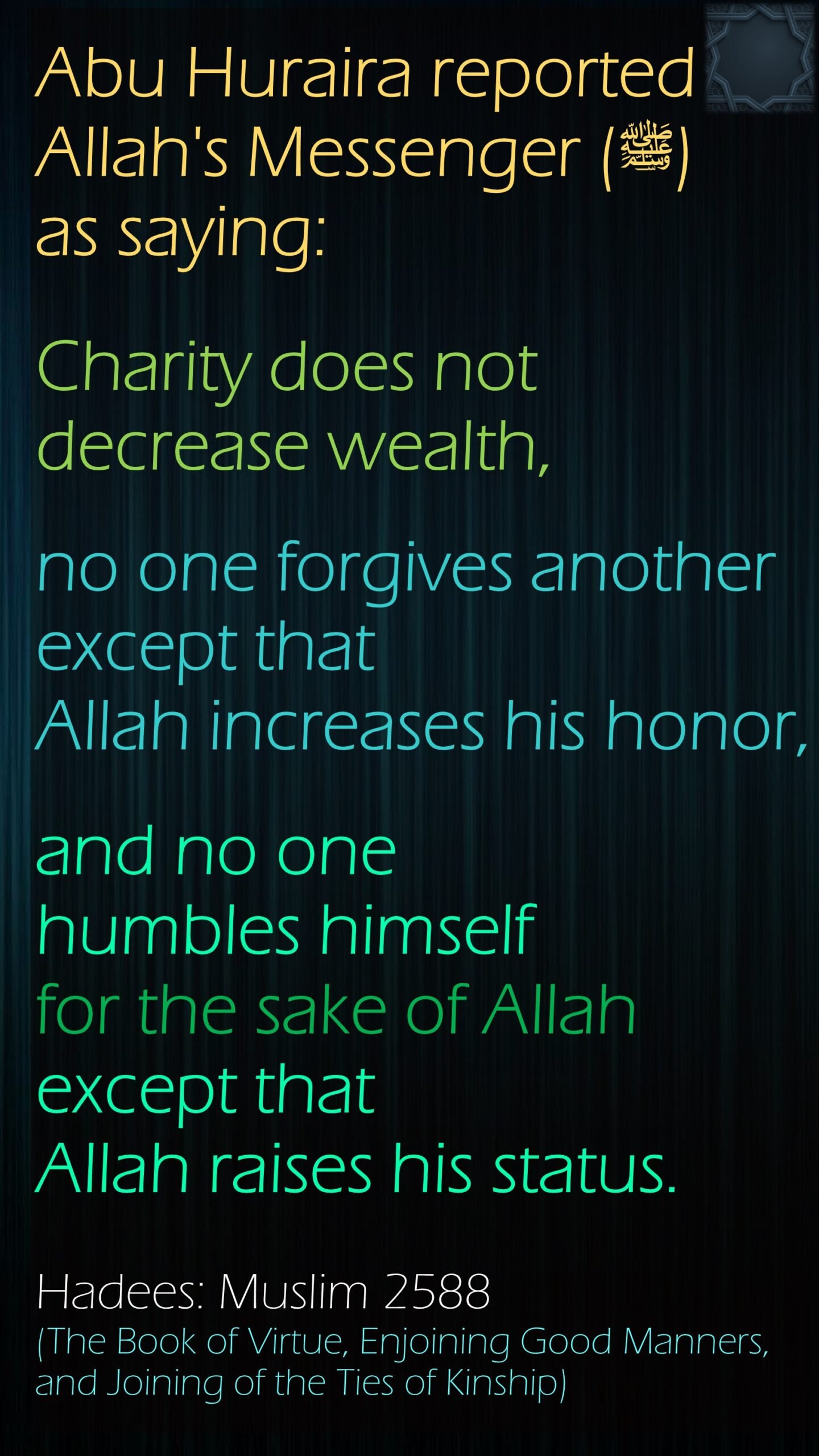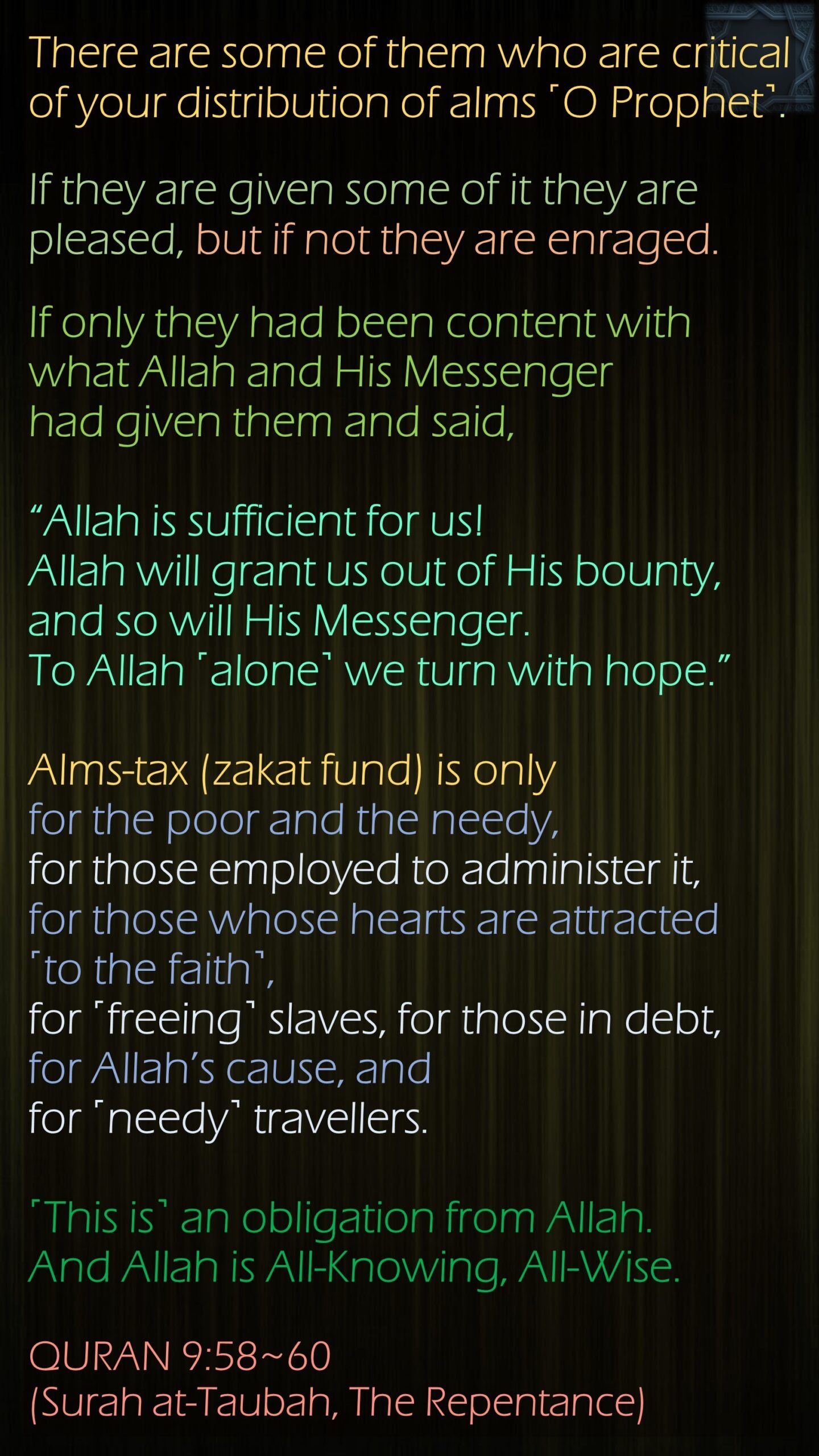Skip to Content
Tag Archives: charity
- Home -
- Posts tagged "charity"
( Page2 )
14
Oct, 2024
Hadees, Islam
003, 1403, 180, al_Imran, All-Aware, Allah, bad, bald, bukhari, charity, daily, day, earth, encircle, eyes, greed, hadees, inspirations, islam, islamic, judgement, Muhammad, neck, obligatory, poisonous, snake, spot, treasure, wealth, withhold
13
Oct, 2024
Hadees, Islam
4684, 5352, 7496, 993, Allah, bukhari, charity, daily, hadees, hadith, inspirations, islam, islamic, Muhammad, Muslim, provide you, provision, Sahih, son of Adam, spend, spend in charity, would not be poor
22
Jul, 2024
Islam, Quran
002, 275, 276, al_Baqarah, Allah, ayat, charity, Cow, daily, evildoer, fire, fruitful, fruitless, gain, inspirations, interest, islam, islamic, Judgement Day, madness, Muhammad, persist, quran, refrains, resident, Satan, Surah, trade, trading, ungrateful, warning
18
Jun, 2024
Hadees, Islam
092, 4946, al_layl, Allah, ayat, bad, best, bukhari, charity, daily, deeds, depend, duty, ease, effort, funeral, good, hasten, Heaven, hell, inspirations, islam, islamic, jadees, Muhammad, paradise, place, quran, recite, reward, Surah
13
Jan, 2024
Hadees, Islam
Adam, Allah, belong, charity, consume, daily, except, forward, hereafter, inspirations, islam, islamic, Muhammad, sent, son, utilize, wealth, wore, worn out
22
Nov, 2023
Hadees, Islam
Allah, appeal, benefit, charitable, charity, daily, deed, earn, evil, good, help, inspirations, islam, islamic, Muslim, needy, nothing, work
21
Nov, 2023
Hadees, Islam
charity, daily, decrease, forgive, humility, increase, inspirations, islam, islamic, Muhammad, quran, sake, stature, status, Surah, wealth
3
Nov, 2023
Islam, Quran
accept, Allah, alone, ayat, charity, daily, inspirations, islam, islamic, know, Mercy, Muhammad, not, quran, repent, repentance, Surah, taubah
2
Nov, 2023
Islam, Quran
Allah, ayat, Bounty, charity, daily, day, evil, heart, inspirations, islam, islamic, jusgement, Knower, knows, Muhammad, plague, quran, secret, spend, Surah, thoughts, unseen, withheld
31
Oct, 2023
Islam, Quran
admister, All-Knowing, All-Wise, Allah, alms, cause, charity, daily, debt, distrivbution, Faith, free, inspirations, islam, islamic, Muhammad, needy, obligation, poor, quran, repentance, slave, Surah, taubah, tax, Traveller, Zakat










